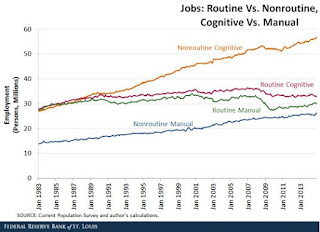| Tim’s Motorcycle Diaries |
I’ve been taking a break from writing on work over the holiday and have instead been writing about my new love: motorbikes. In the last post I wrote about mechanical empathy and how a machine that challenges you can also encourage growth; this resonates with technology and how we use and teach it.
Using technology without understanding it is what we aim for in school because we have so many other important things to get to, I think this is a fundamental mistake. Using a tool in ignorance means you’re never really using the tool effectively. I’m not suggesting that everyone needs to be a computer engineer in order to use computers, but there is a fundamental level of familiarity you need in order to use any machine, including a computer, effectively.
A machine that does too much for you, even to the point of making decisions for you, is a dangerous machine indeed. An education system that caters to this kind of thinking is equally dangerous. Our use of technology should never be founded on ignorance.
“That a machine should place demands on us isn’t a bad thing, especially if it leads to a nuanced awareness of our own limitations. The machine that can overextend you, challenge you, stress you, is a machine that can teach you something. We fool ourselves into stagnation when we design machines that do more and ask less from us.”
There is a consumerist drive to produce machines that appear to be our servants, that will do what we want, sometimes without us evening knowing that we want it. This kind of magical thinking might sell units but it doesn’t offer any room for growth. That educators are willing to cater to this approach isn’t very flattering.
I’d originally written on this from the point of view of motorcycling, which makes extreme demands on the rider. Compared to driving a car, especially a modern car that shifts, brakes and even parks for you, riding a motorcycle is a physical and mental challenge. In that challenge lies a great deal of risk and reward. The opportunity to amplify your thoughts and actions through a complex, nuanced, challenging machine is a growth medium. Growth in our students is what we should always be aiming at, even in using the tools we hand them.
In extreme cases machines take over decision making for us, reducing us to irrelevance. Teachers need to be especially vigilant about how students use technology. It’s very easy for the tech to take over (it only wants to help!) and the human being it’s supposed to be assisting becomes a passenger.
When we use a machine to amplify ourselves it not only magnifies our achievements, it also subtly changes how we create. Any teacher who has observed the digitization of student work in the past ten years has noticed how cookie-cutter the material has become. Plagiarism is just one aspect of the cut and paste nature of modern student work.
Even in a scenario where the machine is a responsive tool, it will colour how you create. Some technology is even predicated on this thinking. Your degree of technical understanding minimizes this influence and allows you to side-step homogenized technological presentation. If you don’t care that what you are producing has been cookie-cuttered into a template that looks like everyone else’s, then what does that say about what you’re learning? If you’re using technology to do something else you need to understand the technology in order to realize how it’s colouring your learning.
It’s a shame that so many of us prefer machines that will do it all for us rather than taking up the slack ourselves. There are two ways we can integrate with machines, I’ll always go for the road less traveled and ask for a machine that offers me more opportunity, even if it also demands more expertise.









